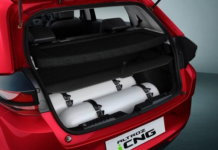One of the key things to bear in mind when selling or purchasing. A second-hand vehicle is the Goods and Services Tax (GST) charged on the transaction. The GST for second-hand cars has been an area of controversy right from. When it was brought into India due to its instant effect on what one pays. When they buy a used car. As the rules and regulations continue to change for GST. It is essential for both buyers and sellers to know how it impacts second-hand cars.
In this article, we will detail all you should know about GST on second-hand cars.The current tax rates, and the vehicle transfer process rules. As a buyer or seller, understanding the effect of GST can guide you in making informed choices in your used car deals.
What is GST?
GST or Goods and Services Tax is an exhaustive indirect tax imposed on the supply of goods and services in India. GST had substituted a number of taxes such as service tax, VAT, and excise duty and made the tax process simpler as well as transparent.
In the GST regime, different tax rates are imposed on different goods and services. There are two tax components:
CGST (Central GST)
SGST (State GST) Or in interstate sales case, IGST (Integrated GST) is charged.
Second-Hand Car GST is a unique one as it’s not a regular commodity. The tax collection on second-hand cars is a bit distinct from a new car due to the prime reason that used cars are charged as selling second-hand items, which is under some concession on the tax under the GST act.
How GST on Second-Hand Cars Works
One of the fundamental facts to understand about GST on second-hand cars is the way the tax works in the context of the transaction, as it varies according to the sale type (dealer transaction or direct transaction).
-
GST on Second-Hand Cars Purchased from a Dealer
If you are purchasing a used car from a registered motor car dealer or a motor car dealer, sale is liable for GST. Still, a reverse charge mechanism can be utilized by the dealer when the vehicle is sold above the original price of the vehicle.
The GST on sale by a used car dealer is generally 12%. It is levied on the difference between the price at which it was bought and the price at which it is sold. That is, the GST is levied only on the profit value or value added by the dealer, and not on the overall sale value of the car.
-
GST on Second-Hand Cars Purchased from an Individual Seller
The rules are different if you purchase an old vehicle directly from an individual person (private seller). The GST in such a scenario is not paid because the transaction between two individuals involves no profit for the seller. Rather, it is the sale of second-hand articles, and the GST is not charged.
But here it must be noted that the cost of car transfer and other charges like registration charges will still be charged because they are required to transfer the ownership of the car.
-
GST on Sale of Used Car by Individual to Dealer
If you sell a second-hand vehicle to a registered motor trader, you do not pay GST. This is simply because dealers are supposed to be buying the vehicle at market value, GST inclusive. The dealer will then pay GST when he or she sells the vehicle.
-
Input Tax Credit (ITC) and Second-Hand Cars
Input Tax Credit (ITC) is also one of the major advantages given to businesses under the GST regime. It allows businesses to claim tax paid on procurement and utilize it as payment of sales tax charge. However, ITC does not work on purchasing used vehicles from an individual because they are unregistered vendors.
In the situation of purchasing a second-hand car from a dealer, the dealer can recover ITC on GST which they have incurred while purchasing the vehicle. This reduces their net tax outgo, which, subsequently, can reduce the price at which they are selling the used vehicle.
GST Rates on Second-Hand Cars – Latest Update
The current GST rate for second-hand vehicles is charged according to the sale type, dealer or private sale. As noted, the standard GST rate of 12% applies to vehicles sold by dealers.
But the GST on second-hand vehicles may also be levied on the car value. If the dealer is selling a second-hand car with high margins, then he or she would have to charge GST in that particular margin as opposed to on the whole vehicle price. The tax is therefore not levied on the full selling price but on the dealer’s added value.
You must read the vehicle transfer documents to determine if the proper GST rate has been used in the sale.
Vehicle Transfer Procedure and Implication under GST
When buying an old car, vehicle transfer involves transferring the registration of the vehicle from the owner’s name who is selling the car to that of the buyer. Vehicle transfer is done via the following:
Get the Sale Agreement: The seller and buyer will sign an agreement that includes the terms of sale, including date of sale and sale price.
Submit Documents to RTO: Both parties will submit the documents to the Regional Transport Office (RTO) and include the original RC, address and identity proof, and the sale agreement.
Pay Transfer Fee: The transfer fee for the vehicle should be paid to the RTO by the buyer. It varies differently across each of the states wherein the transaction takes place.
Completion of RC Transfer: Once the transfer fee has been paid. The RTO will fill in the application form. Transfer the ownership of the vehicle to the name of the buyer.
The transfer of a vehicle also involves the buyer ensuring that the tax status of the vehicle is clean, i.e., all past dues, taxes, or penalties have been paid. For people financing the purchase through a used car loan app, it becomes crucial to ensure the tax status so that issues related to transfer of ownership do not arise. But in the case of GST, if it is purchased from a dealer, then the GST will be a part of the selling price and would be paid by the dealer.
Impact of GST on the Used Car Market
GST implementation has impacted the used car market drastically, especially on the prices. The following are the most important points to note:
Price Transparency: GST has ensured higher price transparency as the dealers now quote second-hand cars’ prices inclusive of GST.
Dealer Profit Margins: The margins of the dealers have to be paid for by them in terms of GST. Which raises the price of used cars sold by the dealers. This is, however, offset by the fact that they are able to get ITC. This keeps their net tax burden lower.
Consumer Awareness: Aware of GST rates and standards being determined. Consumers are thoroughly aware of taxes paid on purchasing second-hand cars. There is minimal room for over-invoicing and scope for cheating.
Final Thoughts on GST on Second-Hand Cars
It is imperative that every individual involved in the sale or buying of second-hand cars is adequately informed about GST. The latest rules and tariffs guarantee that the taxation is charged fairly and honestly, especially in dealer-mediated sales. Although GST might not be charged on private-to-private buys. It is important to include all the rest of the charges like transfer charges of the car and registration fees.
It matters to the consumers to compare prices of second-hand vehicles sold by dealers. In the GST-inclusive price to be able to make sound decisions.
Similarly, dealers should ensure to adhere to the process of conveying the vehicle. As well as taking good records for all transactions.That would prevent anything from going awry.
By being aware of the current GST rates on old cars and procedures. You can move ahead confidently to the second-hand. Car market and make smart decisions while selling or purchasing cars.










